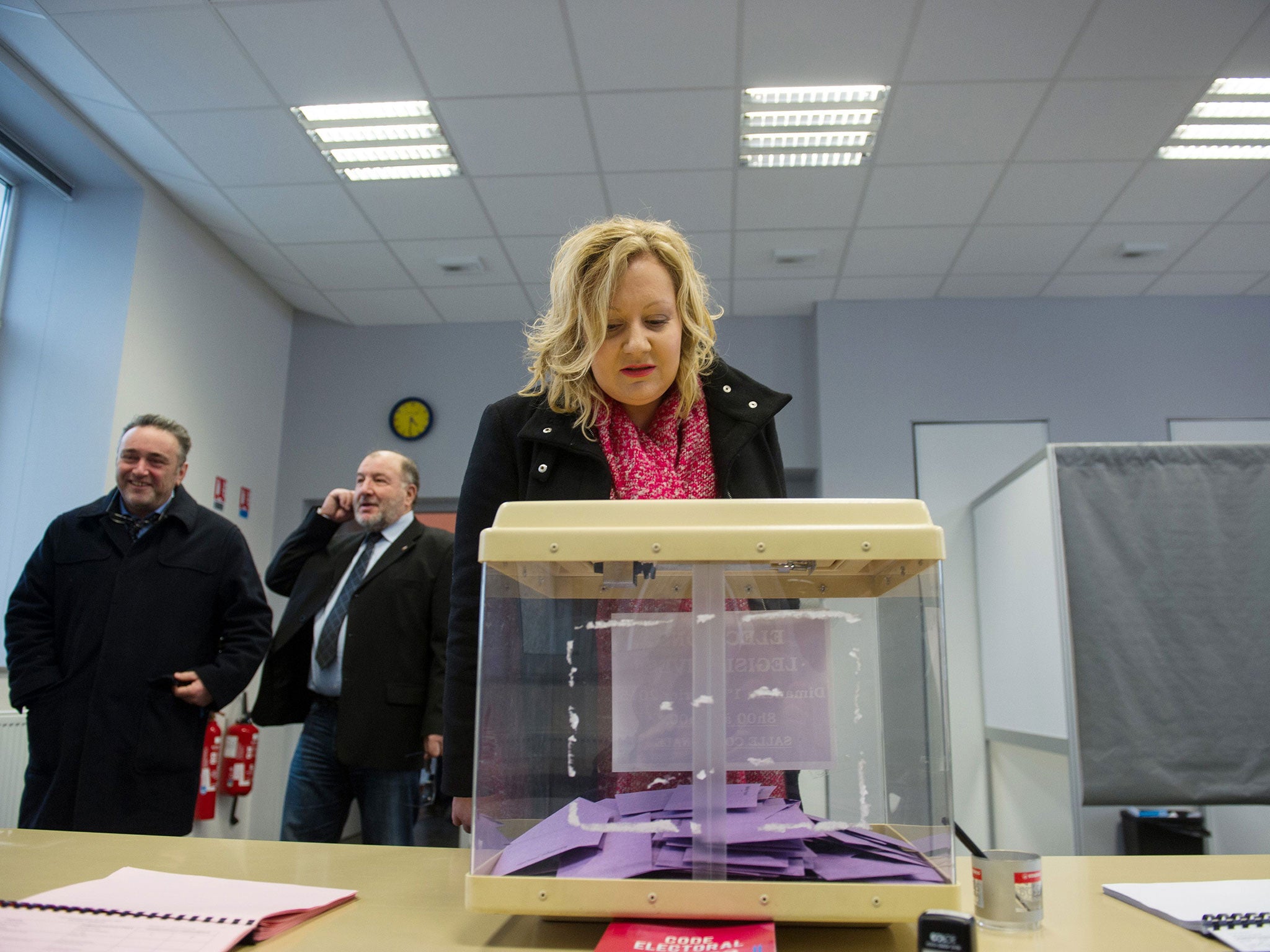Doubs by-election: Far right tops poll in litmus test of French opinion after Charlie Hebdo attacks
The candidate for former President Nicolas Sarkozy’s centre right party was knocked out in the first round

The far-right Front National has topped the poll in a parliamentary by-election in eastern France but may struggle to win the seat in the second round next weekend.
The voting in Doubs, in Franche Comté, was the first significant test of the mood of the French electorate since the terrorist attacks in Paris last month.
The candidate for the governing Socialist party polled better than expected and qualified for a two-candidate run-off next Sunday. In a blow to former President Nicolas Sarkozy’s hopes of reviving the fortunes of the centre right, his party’s candidate was knocked out in the first round.
The by-election was fought in freezing conditions on empty streets and roads, amid widespread local indifference. Heavy snow today further reduced the turnout in a mixed rural-industrial area of economically depressed small towns and villages next to the Swiss border.
The poll was still seen as an important guide to the mood of the French electorate half way through the term of President François Hollande.
The voting was a first test of his fragile recovery in national opinion polls since 17 people were killed in three days of terrorist mayhem in Paris last month. The strong performance of the Socialist candidate, Frédéric Barbier – who looked likely to take 30 per cent of the vote – took many commentators by surprise.
With the help of voters for the five other left wing candidates eliminated last night, Mr Barbier has reasonable hopes of retaining the seat for the government next week. All will depend on how many centre-right voters abstain or turn to the far right.
The far-right candidate Sophie Montel, who scarcely appeared in public during the campaign, topped today's first round poll with a predicted 34 per cent of the vote. She has an outside chance of becoming only the third FN member of the National Assembly next week. The party’s leader, Marine Le Pen, campaigned on an “Islamist threat” to French identity. She has, however, faced extremist challenges in recent weeks to her relatively moderate line from senior party diehards including her father, Jean-Marie Le Pen.
The by-election also offered a first guide to the recovery of the troubled centre-right opposition since Mr Sarkozy returned to the leadership of the Union pour un Mouvement Populaire (UMP) in September. The poor performance of the UMP candidate suggests that Mr Sarkozy’s hopes of a surge of popular support has failed to materialise.
The seat was won in 2012 by Pierre Moscovici, Mr Hollande’s campaign manager and later his finance minister, who recently appointed as European Commissioner for economic affairs. FN and UMP campaigned mostly against Mr Moscovici, who they said had been the architect of a failed economic policy which had brought high taxes and high unemployment.
Join our commenting forum
Join thought-provoking conversations, follow other Independent readers and see their replies
Comments